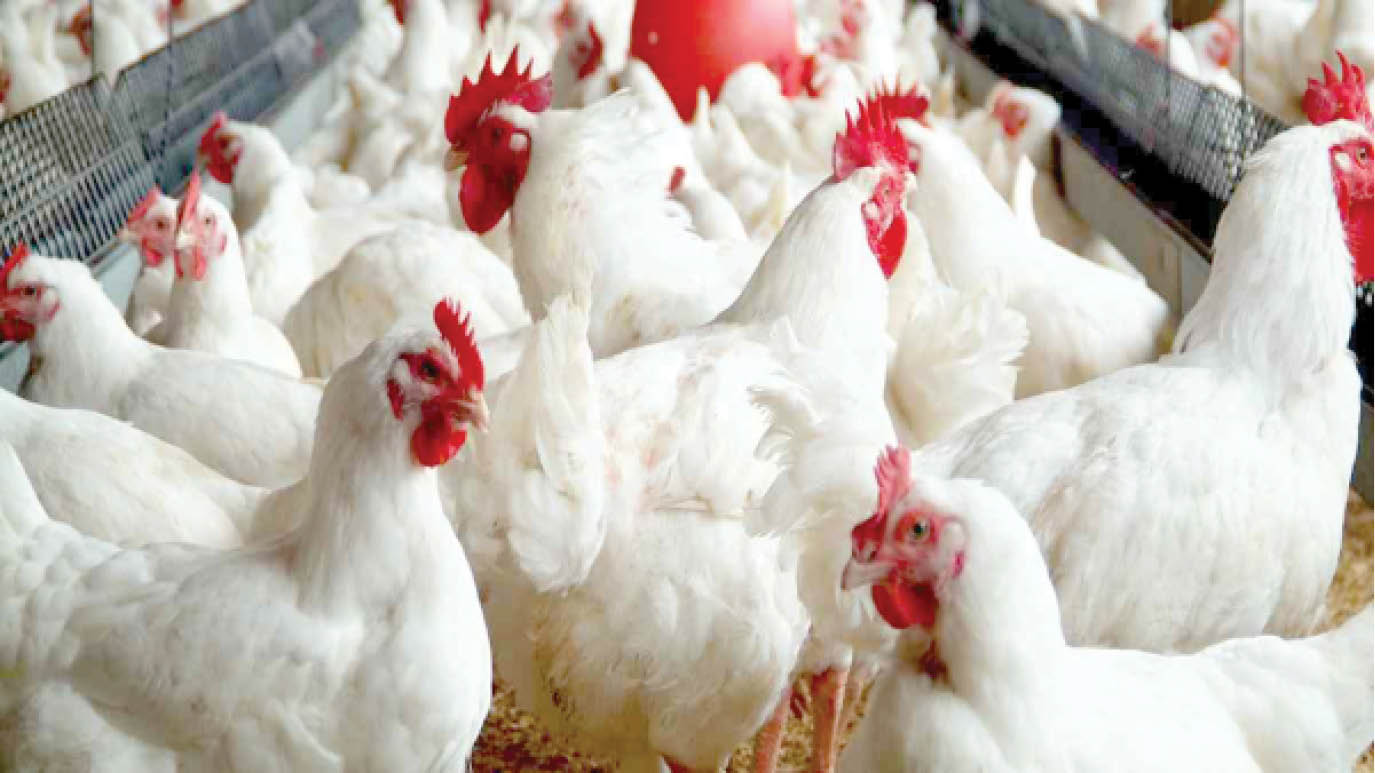The feed crisis that engulfed the poultry sector from late last year nearly consumed the sector said to have been providing over six million jobs in the value chain.
Many smallholder farmers across the country folded up because of the high cost of feed with few bigger ones struggling to survive.
- Tortured to death: Court awards N210m against police
- FRSC advises drivers plying Lagos-Ibadan route to seek alternatives
The leader of the poultry farmers in the country under the auspices of Poultry Association of Nigeria (PAN), Ibrahim Ezekiel Mam, had raised an alarm that unless urgent steps were taken to address the feed crisis, many poultry farmers would have to close up and millions of workers would be again thrown into the labour market.
Stakeholders in the sector believe that factors such as high inflation rate, restricted importation of grains, climate change, interruptions in maize and soybean production have compounded the hurdles of farmers.
Insecurity in the grain-producing states, and by extension, in all parts of the country, has worsened the demand-supply gap of inputs such as feed ingredients, product movement and market penetration.
Farmer-herder crisis has also affected grain production, as population increase intensifies competition for grains between industrial food processors for humans and animal feed producers, constantly pushing prices upward.
During the peak of the crisis, our Agric editor reports that a bag of layer mash feed costs about N6,000, while a bag of grower mash feed costs about N5,000, depending on the brand of the feed.
Thus, when the Central Bank of Nigeria (CBN) intervened in January by announcing that about 300,000 metric tonnes of maize were ready for supply from strategic anchors under the Anchor Borrowers’ Programme (ABP), many stakeholders believed the gesture would reduce the high price of maize from N155,000 per metric tonne at that time.
The apex bank said the planned release followed a move by the critical stakeholders working with relevant government agencies to put a halt to reprehensible and speculative activities of middlemen and bandits.
It was expected that the price of maize would drop significantly, thereby increasing demand for the crop and ultimately enhancing the gains of maize farmers.
Bello Abubakar, National President of Maize Association of Nigeria (MAAN), commended the CBN for the development, stating that the apex bank have always been in support of agric production and food security in the country.
According to him, “This is part of the efforts they are making also in order to assist Nigerian farmers and processors in the country. We are in total support and we appreciate what they are trying to do because it will also encourage us to produce more,” he said.
Dr Opeyemi Agbato of the Animal Care applauded the CBN for the initiative, saying that the direct allocation and release of maize to key feed millers under the CBN’s Strategic Maize Reserve programme was a much-needed intervention.
“They made true to their words and pronouncements of release. It was unfortunate that the release coincided with a time when the prices of Soybeans whose by-product is a critical source of protein in poultry feed experienced an astronomical increase mostly due to rapid exportation.
Agbato, who is also the PRO for the Ogun State chapter of PAN, said even though there is a dire need for foreign exchange in the country, Soy is insufficient for local use and that current exportation is at the detriment of local livestock farmers, particularly poultry farmers.
General Manager, Premier Feeds Ltd, Austin Daylop, talking on the impact of the intervention, said: “We are encouraged with this intervention effort by the CBN and have witnessed how it has helped to ameliorate rising market prices for maize. This is a positive start in finding lasting solutions to critical national concern.”
Chief Executive of AFEX Commodities Ltd, one of the partners facilitating the distribution, Ayodeji Balogun, said by facilitating the release of the 300,000 tonnes of maize, leveraging support from credible players in the ecosystem, including its team at AFEX, the CBN would offer over 35,000 farmers and agro-processors a channel through which they could trade maize at a subsidised rate, and thereby reduce the adverse effect of the maize price hike, increase local demand, and improve farmers’ livelihoods.
But where do we go after the CBN’s intervention?
Some other stakeholders in the sector believe that the much publicised intervention may not in all provide what is needed to address the crisis in the feed sector.
Mr. Oguntuanse Imam, a commercial poultry farmer in Kwara, called for a round table meeting among the major players to champion the permanent solution rather than relying on such interventions only.
While commending the apex bank’s anchor borrower programme, Imam urged the bank to capture more maize farmers in the exercise and possibly extend the gesture to Soya beans production.
Also in his opinion, General Manager, Premier Feeds Ltd, Austin Daylop, observed that if the challenge of food prices would really be solved, stakeholders should come to the table and work out sustainable solutions.
“If we are going to really settle these food prices, we all must come to the table to address the root cause of these challenges and work towards sustainable solutions for farmers, feed millers, fish & poultry farmers, and all other stakeholders,” Daylop added.
Managing Director, Amobyn Farm, Dr Ayoola Oduntan, harped on stimulation of local production by improving on security, making improved seeds and production inputs accessible to farmers.
Sporadic interventions like the CBN’s, he added, are one of several factors that could constitute long-term solutions to the challenges. He added that financial facilities, off-taking and storage arrangements should also be emplaced to maximise local production.

 Join Daily Trust WhatsApp Community For Quick Access To News and Happenings Around You.
Join Daily Trust WhatsApp Community For Quick Access To News and Happenings Around You.

